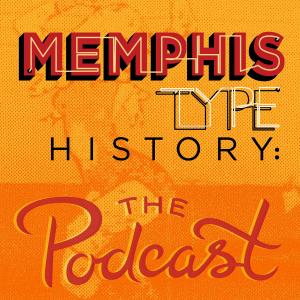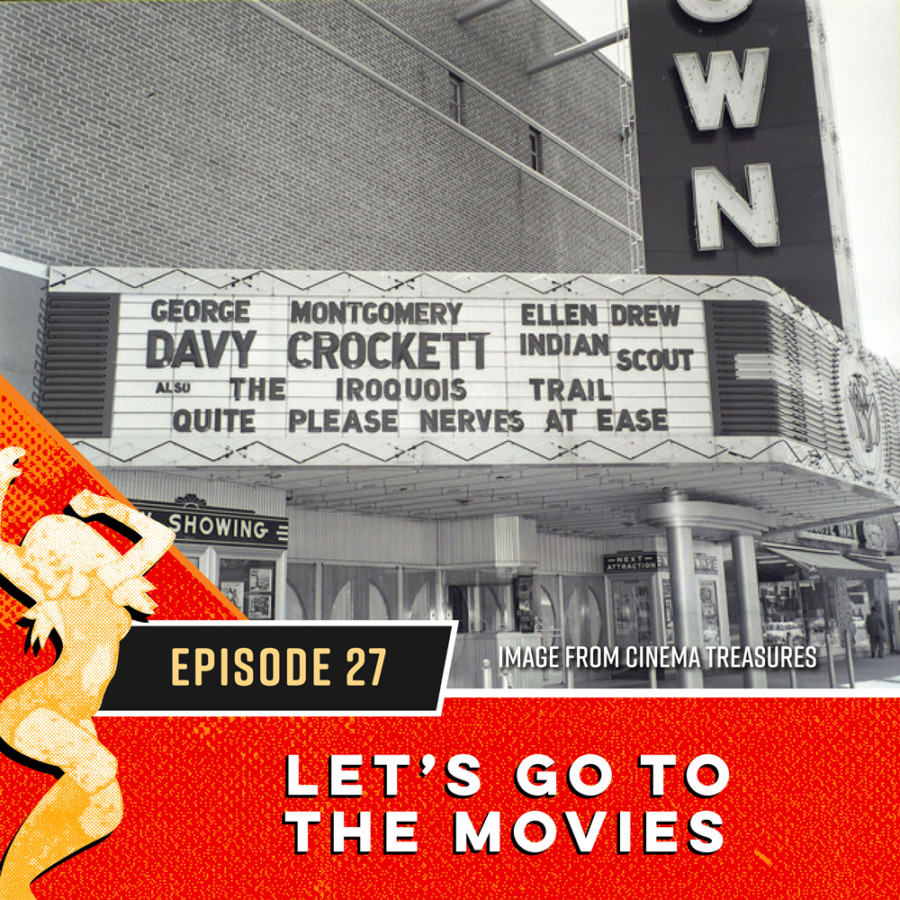
Memphis Type History: The Podcast
Society & Culture:History

In this episode of Memphis Type History: The Podcast, grab some popcorn because we take you to the neighborhood theater of Crosstown, a place that lives no more. Then learn the story behind Lloyd T. Binford, the man who played watchdog over Memphis cinema for many years.
The Crosstown Theater was built in the late 1940s and opened in May of 1951. It stood at N. Cleveland Street which is now occupied by a Jehovahs Witness Kingdom Hall. The theater had a 90 ft. vertical sign with the word crosstown. Sources say a mile of neon tubing was used in the marquee and vertical sign. At the time it was the largest neighborhood theater in Memphis, holding 1,400 seats. For perspective if you've ever eaten at The Magestic Grill on North Main Memphis, that was once a theater that held 1,000 seats.
In the 1960s and 1970s, Elvis Presley used to rent the theater out for all-night movie sessions.. although we learn that this wasn't anything new for Elvis and we even tell a short story about an encounter with Elvis at another theater with a gifting of a gold cup. The Crosstown Theater closed on May 5, 1976, but was then sold to Jehovah's Witnesses who were able to get a $1.3 million makeover thanks to a 100 percent volunteer workforce that was funded by donations.
Rebecca's only regret is moving to Memphis only 3 years after the vertical sign was removed and destroyed in 2005.
Now onto the man who kept Memphis AWAY from the movies...
Born in Duck Hill, MS, in 1869, Lloyd T. Binford left school in 5th grade to pursue different moneymaking schemes. Eventually, he became president of the Columbian Mutual Life Insurance Company in 1916 and moved to Memphis in 1925. There, he built the Columbia Mutual Tower, a 22-story white terra cotta building on Court Square (now known as the Lincoln America Tower).
Enter the Memphis Censor Board, created in 1921 with a mission to "censor, supervise, regulate, or prohibit any entertainment of immoral, lewd, or lascivious character, as well as performances inimical to the public safety, health, morals, or welfare." It was pretty much just a name with no action until Binford got ahold of it in 1928. Under Binford, the censor board would ban more Hollywood movies than any other city. It got so intense that folks started saying their films might get "Binfordized," and would even send their scripts in early to get Binford's approval early on.
What times of movies got “Binfordized?” Try anything containing train robberies. Or even King of Kings because it differed a bit from the Bible and the crucifixion aspect was too violent. And then there was The Woman They Almost Lynched, which wasn't shown in Memphis because Binford was simply against films featuring Jesse James. Anything Ingrid Bergman made was banned because she was having an affair with director Roberto Rossellini. And no Charlie Chaplin either "because of Chaplin's character and reputation," as quoted in the Chicago Daily Tribune. Memphians missed out on Rebel Without a Cause because Binford felt it promoted juvenile delinquency. He also banned films containing relationships between blacks and whites that he personally disagreed with, and often censored black performers' scenes altogether.
So what did Memphians do under the heavy weight all these movie bans? Well, many flocked to Mississippi and Arkansas to see those films advertised as “Banned in Memphis.” In fact, 15,000 Memphians went to Arkansas in 1928 to see Gloria Swanson's Miss Sadie Thompson.
Binford resigned his position several times due to bad health, but kept getting called back to the position by supporters. He died the year after actually retiring and is buried at Elmwood. The censorship law that gave Binford so much power was only declared unconstitutional in 1965.
For full show notes and pictures, visit memphistypehistory.com/binfordized
Support the show at patreon.com/memphistypehistory and get bonus content like our weekly blooper reel, digital wallpaper featuring Rebecca's artwork, t-shirts, signed books, and more!
More Episodes
 2018-01-07
2018-01-07
 2018-01-01
2018-01-01
 2017-12-25
2017-12-25
 2017-12-17
2017-12-17
 2017-12-10
2017-12-10
 2017-11-28
2017-11-28
 2017-11-22
2017-11-22
 2017-11-13
2017-11-13
 2017-11-06
2017-11-06
 2017-10-22
2017-10-22
 2017-10-15
2017-10-15
 2017-10-08
2017-10-08
 2017-09-24
2017-09-24
 2017-09-17
2017-09-17
 2017-09-10
2017-09-10
 2017-09-06
2017-09-06
 2017-08-27
2017-08-27
Create your
podcast in
minutes
- Full-featured podcast site
- Unlimited storage and bandwidth
- Comprehensive podcast stats
- Distribute to Apple Podcasts, Spotify, and more
- Make money with your podcast
It is Free
- Privacy Policy
- Cookie Policy
- Terms of Use
- Consent Preferences
- Copyright © 2015-2024 Podbean.com





